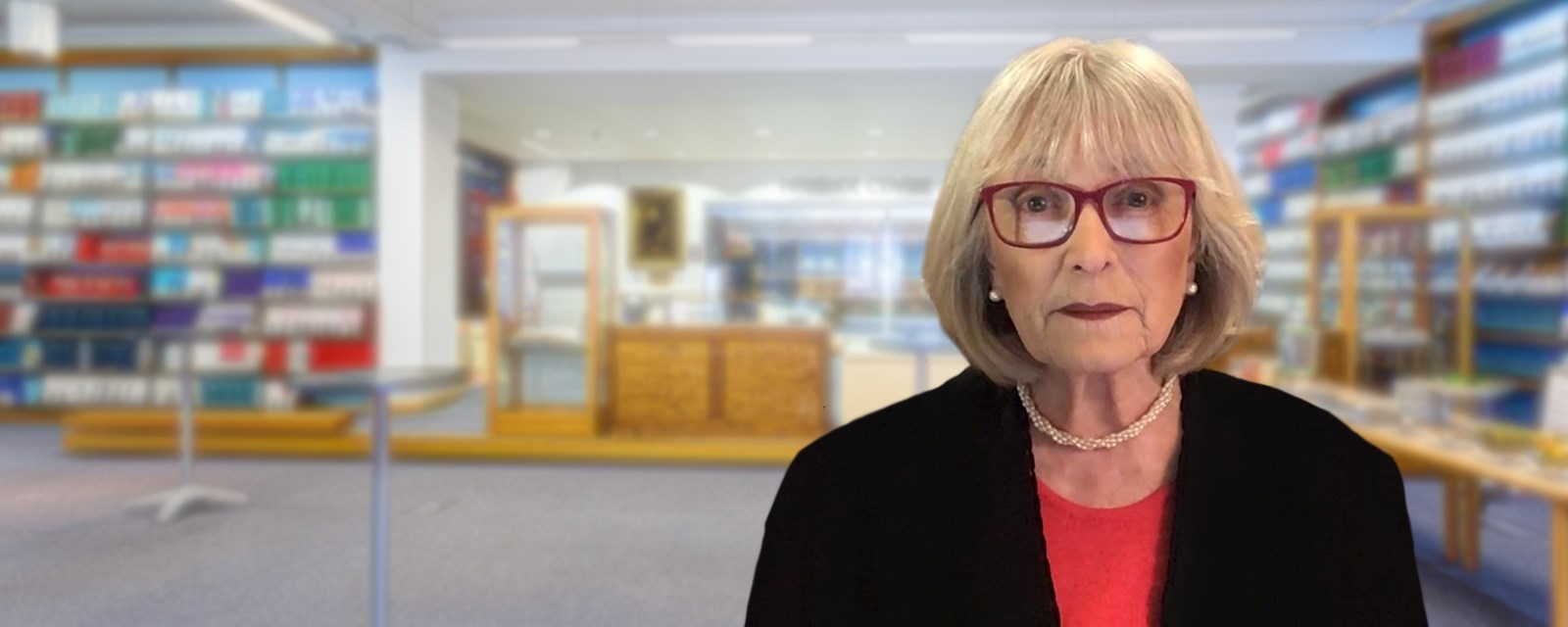
This much I’ve learnt: Judith Potts
Charity leader Judith Potts talks about Esme’s Umbrella, the organisation she set up in 2015 to raise awareness of devastating visual hallucinations among people with sight loss, and how she finds inspiration in the young researchers exploring ways to advance understanding and treatment of Charles Bonnet syndrome.
At least a million people in the UK are affected by Charles Bonnet syndrome
It’s a condition affecting people who have lost a lot of their sight. The main symptom is visual hallucinations, which can be deeply disturbing. The condition is caused by the brain receiving less information than it is used to and compensating by creating visual hallucinations.
Older people are affected more because eyesight diminishes with age, but children can be affected too. For older people, it's very difficult to persuade them that what they're seeing isn't real because the hallucinations can be incredibly vivid and clear.
Some people cope well but a third of people with the condition need to be supported
I started Esme’s Umbrella because I watched what happened to my mother when she was in her early 90s. She was very independent and although I knew her sight wasn't good – she had glaucoma – it was clearly much worse than I realised because she was very good at compensating.
I was leaving her flat one day when she said ‘I just wish these people would get off my sofa. There's a child dressed in Edwardian clothes that follows me everywhere and a hideous gargoyle like creature that jumps from table to chair.’
At the time dementia seemed to be the only explanation
My mother was well in herself and clearly of sound mind – she used to complete the Telegraph cryptic crossword every day. After I read an article explaining Charles Bonnet syndrome (CBS), I realised this could be the cause of my mother’s hallucinations. But when I spoke to her ophthalmologist and her GP neither had heard of the condition. The conclusion was that she had dementia.
I decided to write about the condition in the health column I was writing for a national newspaper. This led me to Dominic ffytche, Professor of Visual Psychiatry at King’s College London, who confirmed my mother’s CBS diagnosis. He is now the medical adviser to Esme’s Umbrella and one of our trustees.
People were relieved to know what was causing their hallucinations
When I started writing about CBS, I was inundated with emails from people who wanted more information or who just wanted to tell me their stories. One was from a professor at a university in the USA who told me the story of her mother, who had been put into a dementia unit against her and her family’s wishes. Her mother was seeing worms and slugs on her food and in her drink. Tragically, she stopped eating and drinking and died.
If patients are warned about the condition, the outcome is better
If patients with diminishing sight are warned that Charles Bonnet syndrome might develop, it can help because when the first hallucination appears, they don't immediately think they’re developing dementia or another mental health condition.
Part of our work at Esme’s Umbrella is to get this message out to ophthalmologists and optometrists. We’re also researching why some people are affected but not others.
Getting the World Health Organization to designate an ICD code for CBS was an important step
CBS is now recognized with its own code in the International Classification of Diseases (ICD 11 – 9D56). Working with Professor Andrew Dick, Duke-Elder Professor of Ophthalmology and Director of the UCL Institute of Ophthalmology to achieve this was a very important step. It means it is accepted as a condition in its own right and we hope this will encourage more healthcare professionals to learn about it.
Inspiring young researchers is one of the best things about my work with Esme’s Umbrella
There are a lot of young researchers now who are interested in CBS, perhaps because it’s an unusual and lesser-explored topic. We've recently set up an essay competition for medical students and, with support from the Office for Veterans’ Affairs Health Innovation Fund, we are working on a research project in collaboration with the charity Bravo Victor and Moorfields Eye Hospital to improve understanding of visual hallucinations among military veterans.
We also ran a research project during COVID-19, the output of which proved that isolation and stress make the condition worse, as does running a temperature. For people with CBS, lockdown was a dreadful experience.
It’s important that health charities like Esme’s Umbrella have clinicians as trustees
The support provided by our clinician trustees Professor Ffytche and Professor Mariya Moosajee, Consultant Ophthalmologist at Moorfields Eye Hospital and Great Ormond Street Hospital for Children and Clinician Scientist specialising in genetic eye diseases at the Francis Crick Institute, is invaluable. Without their specialist knowledge we would be unable to keep up to date on the latest research and clinical developments.
The work of a trustee can be very rewarding (if not financially), but for clinicians who have been invited to become a trustee, it’s important to make sure that the charity is run as you would like it to be. Check it out before you say yes.
The RSM is a lovely place to be
I’ve enjoyed coming to the RSM as a guest for several years and recently became a member myself. The heritage collections in the library are particularly fascinating. Charles Bonnet, who lived and worked in Geneva, first described the condition in 1760 but most of his work is documented in Switzerland. I’m looking forward to discovering if the library can unearth any writing that might cast new light on the history of the condition.
